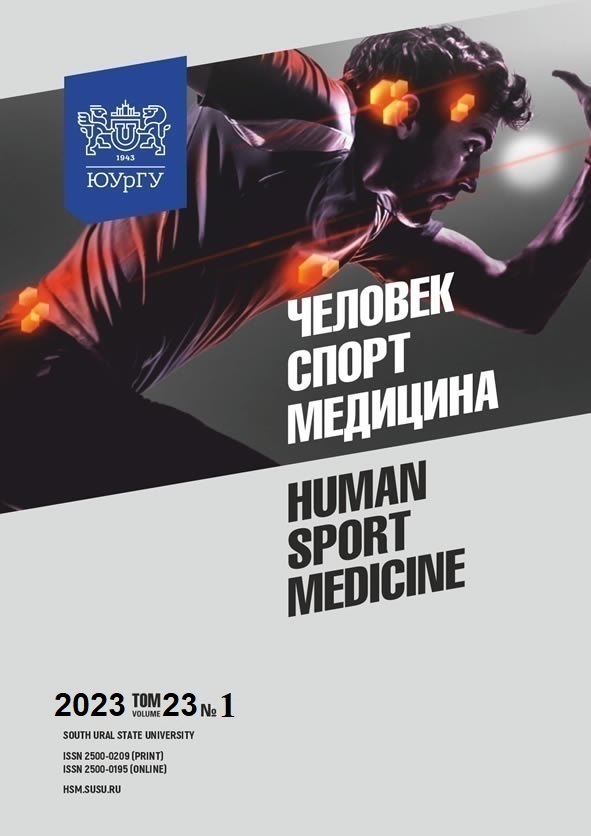CHESS-PONG FOR COGNITIVE TRAINING AND MOTIVATION FOR LEARNING AND PHYSICAL ACTIVITIES IN TABLE TENNIS
Abstract
Aim. The paper aims to identify the effect of chess-pong on cognitive abilities and motivation for learning and physical activities in table tennis. Materials and methods. The study took place at South Ural State University (National Research University). The sample involved male engineering students with elementary table tennis skills. Two groups of 20 people each were formed as a result of physical and technical assessment (control and experimental groups). Motivation for learning and physical activities, personal qualities of athletes, and cognitive and tactical skills in table tennis were assessed with a special questionnaire (by T. Dubovitskaya), a 4-level scoring system, and the Eysenck IQ test, respectively.
Results. The comparative analysis showed significant changes in the speed of cognitive processes in the experimental group at the end of the experiment. In the control group, the results obtained showed no significant changes compared to baseline. Chess-pong also resulted in changes in motivation for learning and physical activities. In the experimental group, motivation-related values were two times higher compared to the control group (16.8 c. u.). Moreover, changes in personal qualities were recorded in favor of the experimental group within the following parameters: logic (21.1%, p < 0.05), self-analysis (20.01%, p < 0.01), structure (31.98%, p < 0.01), and emotional intelligence (30%, p < 0.05). Conclusion. The study of motivation for learning and physical activities and intellectual development in table tennis players showed that chess-pong elements had a positive effect on the players’ cognitive abilities. Moreover, chess elements in training had a positive effect on psychological and pedagogical conditions that provided a high level of motivation for this sports activity.
References
References on translit
Copyright (c) 2023 Human. Sport. Medicine

This work is licensed under a Creative Commons Attribution-NonCommercial-NoDerivatives 4.0 International License.















